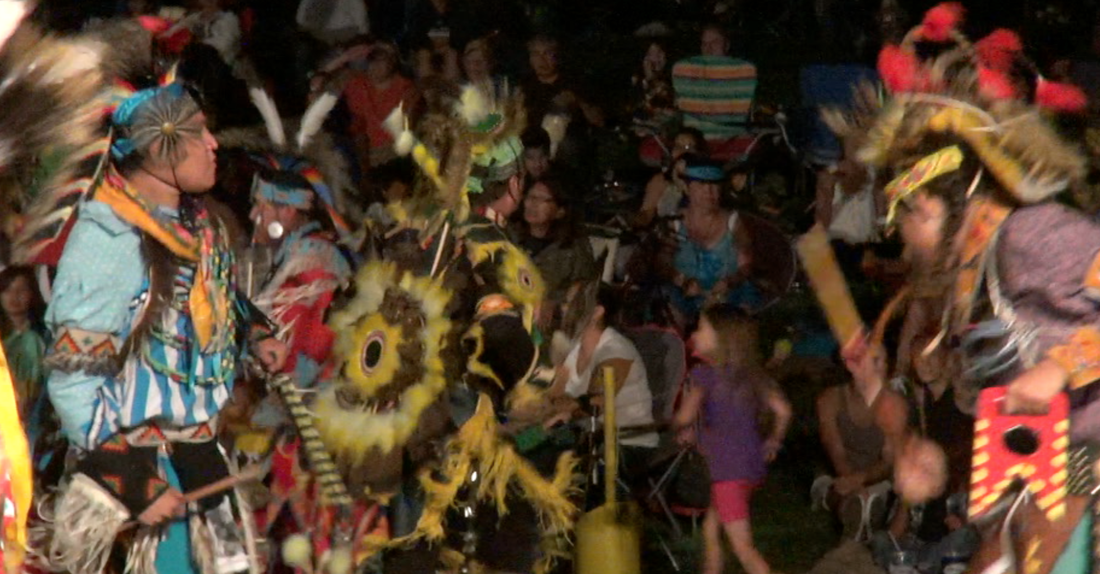"IN THE SHADOW OF THE NEZ PERCE WAR " (1877)
(from The Fair and the Falls, Chapter Two, “Waiting for the Indians”)
One serious exception to the atmosphere of mutual trust in Spokane Falls came during the Nez Perce War in 1877, the last Indian war in the Northwest. News of the uprising was carried to Spokane by Indians, "who kept runners going back and forth over the country and to and from the battlefields." For a time it looked like the Nez Perce, who were being pursued by the United States Army, might pass through the Spokane region. Instead-to [Spokanes founder James] Glover's great relief-they turned east and crossed the Rockies. But a party of Nez Perce came to Spokane Falls and camped close to Glover's store. "They had a skin stretched over a hoop, and they would hold this over the fire and then beat on it in time with their dancing, at the same time yelling in a kind of singsong, although it was not a war cry." For two weeks they sang every night until dawn, when the fire died and they fell asleep.
By now every white nerve in the settlement must have been frayed. Indian relations had been so good that the whites were not heavily armed. Glover says, "We had no firearms, and during the time I have been here, I have never had anything of the sort except a double-barreled shotgun, which I always loaned to the Indians when they wanted to hunt with it." Growing nervous, Glover took to sitting up all night on the stoop of his store watching "the red devils" around the campfire. The other Spokanites, equally concerned, had taken to sleeping together in his house.
One night at three, Glover sensed that the Indians were about to attack. The fire had burned low, and there was no noise from the encampment. Glover sent a friend, Ed Bradbury, to tell the lodgers in his house to be ready for the worst. Some began weeping, others prayed.
The next morning, Glover and others built a raft to ferry the refugees to Havermale Island, in the middle of the river, where they built fortifications. A number of Spokane Indians, most of whom must have been as nervous about the situation as the whites, were ferried over to help with the defenses. Glover was now determined to do something to break the stalemate:
I had made up my mind to stand my ground, but after two nights of sitting up, I had determined on the course that I would pursue-call a few of the old Indians into my store and have a heart-to-heart talk with them as I had often done before. Many times the old fellows had told me of the Wright campaign, and the tears would run down their cheeks like rain.
I called them in and closed the door. I asked them if they remembered the time when they were a happy and prosperous people. They said they did. I asked them if they remembered when Colonel Wright came and destroyed their wealth and made them a poor people. They said they did.
I then asked them if they knew what this squad of Nez Perce Indians were here for, dancing the war dance night after night. They said they did.
"My friends, [Glover said] I know where Uncle Sam's soldiers are. They are very near here, and I can call them here at any hour. Do you want to have the last remnants of your people wiped from the face of the earth? If you do not, see that these Indians leave here and leave here for good before noon."
They promised me, went directly to the camp, and before noon there was not a sign of an Indian to be seen there.
In James Glover's Spokane, the Indians might live nearby, or share a dance floor, or even borrow a shotgun, but Glover left no doubt as to who was in charge at the falls.
(You know you want to!)


 RSS Feed
RSS Feed